Phony war phase in Canadian election .. waiting for the first TV debate in Vancouver
Dec 6th, 2005 | By Counterweights Editors | Category: Ottawa Scene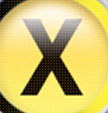 According to the People’s Daily Online in China, a “fierce battle” is “foreseen” in the Canadian federal election campaign now underway. A week into the contest, you can get the latest on all the party leaders’ travels and rapidly accumulating policy promises, nicely laid out in cyberspace by the Canadian Broadcasting Corporation, the Canadian Television Network (and its various regional variations), and other excellent websites too.
According to the People’s Daily Online in China, a “fierce battle” is “foreseen” in the Canadian federal election campaign now underway. A week into the contest, you can get the latest on all the party leaders’ travels and rapidly accumulating policy promises, nicely laid out in cyberspace by the Canadian Broadcasting Corporation, the Canadian Television Network (and its various regional variations), and other excellent websites too.
Yet so far the great masses of the Canadian people do not seem to be paying a great deal of attention. The Liberals are said to be laying low by design – possibly until even just after the start of the new year, when phase two of a two-phase campaign will start in earnest? The Conservatives have been capturing headlines. The New Democrats, some say, have been struggling, a bit. But for the moment the campaign is still in some kind of phony-war phase. (It is not quite like the first months of World War II, but it probably is close enough for Canadian jazz?).
When will the natives get restless?
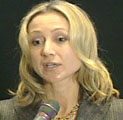 The polls have still not yet suggested any big movement in the overall numbers from the last election in June 2004.
The polls have still not yet suggested any big movement in the overall numbers from the last election in June 2004.
(Though there are some troubling signs of stiffening in the various fragmented regional electorates. And by Friday, December 9 a new Leger Marketing poll was starting to show the Liberals moving into a more convincing lead that just might hint at some prospects of a bare Liberal majority government. On the other hand, polls from the same firm have shown similar results in the past, that have then quickly proved just transient blips on the screen.)
Probably the party policy announcement that has so far most engaged the broad public has been the somewhat if not entirely whimsical call of the Bloc Quebecois “for the partition of Team Canada, proposing the creation of a Quebec-only hockey team that would field some of the world’s best goaltenders in top international competitions.”
The phony war may wind up lasting at least until the first party leaders’ debates on television from Vancouver – in French on Thursday, December 15, and English on Friday, December 16. Last-minute holiday shopping could put a damper on this combat too.
As far as it is ever possible to judge such things confidently, there do seem signs of stirring among the various fragmented grass roots across the country. But they haven’t quite crawled out of the woodwork yet.
Canadian regionalism as one underlying big theme …
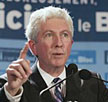 Canada, the late great Ontario novelist Robertson Davies once said, “is a country you worry about.” And one of the big things to worry about in the 2006 federal election seems to be the prospect that the regionally fragmented electorate which produced the finally unworkable 38th Parliament in the 2004 election is becoming even more regionally fragmented.
Canada, the late great Ontario novelist Robertson Davies once said, “is a country you worry about.” And one of the big things to worry about in the 2006 federal election seems to be the prospect that the regionally fragmented electorate which produced the finally unworkable 38th Parliament in the 2004 election is becoming even more regionally fragmented.
As a wise university professor has said, we are really having five different regional elections, held at the same time. The first and most unique is in Quebec, where the Bloc Quebecois vs. the Liberals is the only serious game in town, and the Liberals, it is said, are “facing slaughter” in 2006, to an even greater extent than in 2004.
 At the moment Atlantic Canada and Ontario probably have the most similar federal politics of all the regions (giving at least some currency to some westerners’ characteristic bifurcation of the country into East and West). In both places the Liberals still seem comfortably enough ahead, followed by the Conservatives, and then the New Democrats in a respectable third place.
At the moment Atlantic Canada and Ontario probably have the most similar federal politics of all the regions (giving at least some currency to some westerners’ characteristic bifurcation of the country into East and West). In both places the Liberals still seem comfortably enough ahead, followed by the Conservatives, and then the New Democrats in a respectable third place.
The West, when you get right down to it, is bifurcated itself. The Conservatives rule in the three Prairie Provinces and may even be getting stronger – especially in Alberta, but with some powerful enough presence immediately east as well. (Even though Manitoba and Saskatchewan are also the only provinces in the country today with NDP provincial governments.)
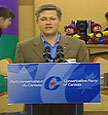 In beautiful BC the three federal parties are almost equal, at least on a good day for the NDP. And what the BC regional electorate finally decides on January 23, 2006 just might have a little more to do with the fragmented structure of the 39th Parliament than the numerically chosen people in the most populous province of Ontario (and their numerically least-chosen collaborators in Atlantic Canada)?
In beautiful BC the three federal parties are almost equal, at least on a good day for the NDP. And what the BC regional electorate finally decides on January 23, 2006 just might have a little more to do with the fragmented structure of the 39th Parliament than the numerically chosen people in the most populous province of Ontario (and their numerically least-chosen collaborators in Atlantic Canada)?
The ultimate democratic voice of all the people in Canada today is some strange amalgam of these different enough regional voices (along of course with the still very scantily-populated far North, which has only three seats in Parliament, all of which will likely enough remain Liberal, perhaps).
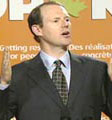 This is no doubt cause enough for various sorts of real concern. And you only have to look at the new online comment sections after articles and columns in the Toronto Globe and Mail to see stark enough evidence of troubling regional tensions, floating around the 2006 Canadian election.
This is no doubt cause enough for various sorts of real concern. And you only have to look at the new online comment sections after articles and columns in the Toronto Globe and Mail to see stark enough evidence of troubling regional tensions, floating around the 2006 Canadian election.
On the other hand, Canadian regionalism is probably also one of the things that actually makes Canadian politics a bit more interesting than usual nowadays. Perpetual talk about breaking up the country, and now in almost all conceivable geographic directions, may be as close to an exciting life on the wild side as Canadian voters will get?
Dec 2-5: FAITH INTERESTS AND DEMOCRACY .. the other two solitudes in the Canadian election of 2006?
 To help kick off the new holiday election, Christian TV producer Lorna Dueck has written a provocative piece for the Toronto Globe and Mail. It begins arrestingly with: “The sleeping giant of Canada’s God-conscious majority has begun to apply itself to the business of who gets into political office.”
To help kick off the new holiday election, Christian TV producer Lorna Dueck has written a provocative piece for the Toronto Globe and Mail. It begins arrestingly with: “The sleeping giant of Canada’s God-conscious majority has begun to apply itself to the business of who gets into political office.”
Ms. Dueck seems a moderate and sensible person, to start with. She is just asking “secularists who cluster in the other solitude” to “sincerely understand the religious heart and mind that Canadians have.” (Well, some Canadians – though nothing quite like a democratic majority, if past election results can be believed. But set that aside for the moment.)
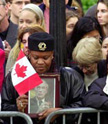 Ms. Dueck also makes a few telling points. She stresses, e.g., that: “Whereas Canada is founded upon principles that recognize the supremacy of God and the rule of law’ is the opening line of our Constitution.” (Well, it’s the opening line of Pierre Trudeau’s new Constitution Act 1982. The opening line of the still standing and officially unamended Constitution Act 1867 is still “Whereas the Provinces of Canada , Nova Scotia, and New Brunswick have expressed their Desire to be federally united into One Dominion under the Crown of the United Kingdom of Great Britain and Ireland …” But, again, set that aside too.)
Ms. Dueck also makes a few telling points. She stresses, e.g., that: “Whereas Canada is founded upon principles that recognize the supremacy of God and the rule of law’ is the opening line of our Constitution.” (Well, it’s the opening line of Pierre Trudeau’s new Constitution Act 1982. The opening line of the still standing and officially unamended Constitution Act 1867 is still “Whereas the Provinces of Canada , Nova Scotia, and New Brunswick have expressed their Desire to be federally united into One Dominion under the Crown of the United Kingdom of Great Britain and Ireland …” But, again, set that aside too.)
Yet even Lorna Dueck finally manages to say something that is bound to rub many in the other solitude the wrong way. She speaks of the need to respect the faith community’s “sacred teachings that government is a gift from God for our own well-being.” And this does seem to reach beyond modern democratic thought and into some realm of medieval theocracy.
Tolerance as a two-way street
 Ms. Dueck is on firmer ground when she urges that “practising the tolerance we demand from the faith community is a two-way street.”
Ms. Dueck is on firmer ground when she urges that “practising the tolerance we demand from the faith community is a two-way street.”
It is no doubt too lamentably true that too many who nowadays presume to speak up for the democratic secular mainstream in the media (and academia) are gripped by their own intellectual and spiritual fundamentalisms, and celebrate cultural pluralism in theory but not in practice.
It may even be true, as Ms. Dueck similarly urges, that too many of “our top journalists include the most irreligious and socially permissive people in the country.”
And there are no doubt some in the secular solitude who seem to believe that the scientific theory of evolution is meant to be some kind of religious doctrine in its own right. (Which finally makes about as much real and philosophical sense nowadays as believing that every word in the Christian Bible or Islamic Koran or any other ancient religious text is part of some literal revealed truth.)
The supremacy of God is indeed at the bottom (or the top?) of the Canadian Charter of Rights and Freedoms
 Pointing out that the opening line of Canada’s Constitution Act 1982 is Whereas Canada is founded upon principles that recognize the supremacy of God and the rule of law’ also raises an important side of our ongoing public life that too many progressive branches of the democratic secular mainstream nowadays often overlook.
Pointing out that the opening line of Canada’s Constitution Act 1982 is Whereas Canada is founded upon principles that recognize the supremacy of God and the rule of law’ also raises an important side of our ongoing public life that too many progressive branches of the democratic secular mainstream nowadays often overlook.
As contemporary Canadian history already records, the specific reference to the “supremacy of God” here probably does owe something to the Pierre Trudeau who was, among other things, a confirmed and practising Catholic in his private life. But it is more fundamentally in the Constitution Act 1982 for another kind of more important and decisive reason.
It appears, significantly enough, at the start of Part I of the Constitution Act 1982, otherwise known as the “Canadian Charter of Rights and Freedoms.” And in this context it is a clear descendant of what modern democratic constitutionalism now regards as some immortal living words in Thomas Jefferson’s American Declaration of Independence of 1776: “We hold these truths to be self-evident: That all men [meaning what we nowadays call men and women or just people or persons, of course] are created equal; that they are endowed by their Creator with certain unalienable rights.”
 Put another way, Canada today, politically, is at its most fundamental depths a democracy. But it is not just a democratic society. It is what the “Guarantee of Rights and Freedoms” in section 1 of the Constitution Act 1982 more exactly calls “a free and democratic society.”
Put another way, Canada today, politically, is at its most fundamental depths a democracy. But it is not just a democratic society. It is what the “Guarantee of Rights and Freedoms” in section 1 of the Constitution Act 1982 more exactly calls “a free and democratic society.”
The fundamental principle by which we claim to make our decisions about public policy is that all power and sovereignty ultimately comes from and belongs to the people of Canada. In the limiting cases the will of the majority of the people decides what will be done. (Which is, among other things again, why Canadians will be having another federal election on January 23, 2006.)
At the same time, even the sovereign will of the majority of the people of Canada must respect the unalienable rights and freedoms of all and each of the citizens of the free and democratic society. The democratic majority, e.g., cannot decide to enslave the minority of citizens born with green eyes – and so on into the sunset and sunrise, on and on.
But can you ever really reconcile faith-based public policy and religious freedom?
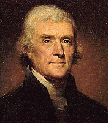 So, just to summarize quickly, with the more urgent matter of the January 23 election more closely at hand, the fundamental principle that the will of the majority ultimately decides flows from the ultimate fundamental sovereignty of the people. From what does the principle that the will of the majority must also respect the unalienable rights of all the equal people flow?
So, just to summarize quickly, with the more urgent matter of the January 23 election more closely at hand, the fundamental principle that the will of the majority ultimately decides flows from the ultimate fundamental sovereignty of the people. From what does the principle that the will of the majority must also respect the unalienable rights of all the equal people flow?
Well, almost 230 years ago Thomas Jefferson (who was not exactly a proper Christian of his day, so to speak) made it quite clear that this principle flows from the people’s “Creator,” who has “endowed” them with “certain unalienable rights.” And, as the reference to “the supremacy of God and the rule of law” in Pierre Trudeau’s Canadian Constitution Act 1982 shows, more than two centuries later in North America, as elsewhere, we have still not been able to come up with a better answer.
The rights of the people do not flow from the will of the majority, which is alas like all mere humanity sometimes capable of wicked and sinful acts. They come from some higher power that is both above and better than mere humanity – call it the Creator, or God, or the Great Spirit or Manitou (as the aboriginal peoples of Canada sometimes still do), or whatever you like. And it is no doubt an important part of our modern democratic political system that it does take some wider public recognition of such a higher and essentially religious or spiritual power for granted.
 Yet does this also mean that we should have more of what Lorna Dueck calls “faith interests in politics” – or what is often now more generally called faith-based public policy – in our democracy today?
Yet does this also mean that we should have more of what Lorna Dueck calls “faith interests in politics” – or what is often now more generally called faith-based public policy – in our democracy today?
Any honestly exact account of just how our modern free and democratic society has indeed developed out of the Christian culture of the West (as, Ms Dueck points out, the Canadian “faith activist” Russ Kuykendall has aptly observed it has in fact) must, in principle at least, finally answer this question with a resounding No.
Modern democracy is in the end an essentially secular conception – in the all-important sense that it leaves the exact nature of the essentially religious or spiritual higher power from which we receive our unalienable rights in the free and democratic society to the private conscience of each equal citizen.
Thus the first “fundamental freedom” guaranteed by the Canadian Charter of Rights and Freedoms, in section 2 of the Constitution Act 1982, is “freedom of conscience and religion.” And the crucial problem of faith-based public policy remains: just how far can you push such a concept, without interfering significantly with this first fundamental right and freedom?
L’envoi … on to the election … get out there and vote
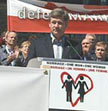 Others will point out as well that Lorna Dueck’s “sleeping giant of Canada’s God-conscious majority” is a rather mystical concept at best – sustained much more by faith than any serious form of hard human evidence, up to and including the ultimately decisive acts of the democratic people on election days.
Others will point out as well that Lorna Dueck’s “sleeping giant of Canada’s God-conscious majority” is a rather mystical concept at best – sustained much more by faith than any serious form of hard human evidence, up to and including the ultimately decisive acts of the democratic people on election days.
(My wife, for one thing, always tells any census taker that she is a Catholic, as she was raised. But she has not been inside a church in years, disagrees with almost all current official Catholic doctrines, and is in many ways much more of democratic secularist than I am. I count myself among the currently rising 15% or so of Canadians who officially report themselves as “No religion.” But I believe I am actually more “God-conscious” than my Catholic wife.)
Yet even if authentically active and serious Christians and/or Jews (in the religious sense), Muslims, Buddhists, Bahai Faith adherents, Mormons, Zorastrians, and on and on actually did constitute the real majority nowadays, our free and democratic society would still be troubled by the thought of too much faith-based public policy.
 It remains very hard to see how – especially in a fallen human universe admittedly so full of sinners and sin – you can have very much of any such thing without very quickly starting to encroach on the unalienable right of the equal people to the fundamental freedom of conscience and religion.
It remains very hard to see how – especially in a fallen human universe admittedly so full of sinners and sin – you can have very much of any such thing without very quickly starting to encroach on the unalienable right of the equal people to the fundamental freedom of conscience and religion.
This is all rather paradoxical, no doubt, when you think of just how all the religious and political histories of the various Wests and Easts and natives and newcomers have and have not mixed and mingled over the past few centuries. But it does seem to be the place at which we have arrived in this part of the global village.
And in the very end it does not seem that, here as elsewhere, it is ultimately going to be possible to turn back the clock – without becoming something quite different from the “free and democratic society” that the Constitution Act 1982 says Canada is supposed to be today.
So remember, if you do happen to live in Canada, no matter what the weather on January 23, get out there and vote, early and often, of course.
Nov 28-Dec 1: Counterweights editors on the election call: NEW LEAF IN THE WIND (AND RAIN)? .. Canadian Liberals fall .. January 23 election official at last
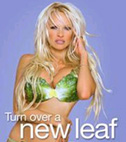 Paul Martin’s Liberal minority government of Canada has now been defeated by a majority non-confidence vote of the united opposition Conservatives, Bloc Quebecois, and New Democrats. The vote took place on the evening of Monday, November 28, 2005, and the final tally was 171 to 133.
Paul Martin’s Liberal minority government of Canada has now been defeated by a majority non-confidence vote of the united opposition Conservatives, Bloc Quebecois, and New Democrats. The vote took place on the evening of Monday, November 28, 2005, and the final tally was 171 to 133.
The free and democratic people of present-day Canada will now be called upon to choose a new and hopefully more workable Parliament than at the last federal election, on Monday, June 28, 2004.
At 9:30 AM ET/6:30 AM PT on Tuesday, November 29 Mr. Martin consulted the governor general he recently appointed himself, Mme Michaelle Jean – just to make things properly legal, on the model of parliamentary democracy that present-day Canada has inherited from across the seas. Their meeting lasted somewhat longer than the waiting TV and press journalists expected. (Who wouldn’t want to linger awhile with the current governor general?)
Already in any case the media were aware that the election date will be Monday, January 23, 2006. On a rainy Ottawa morning Mr. Martin eventually emerged from his meeting with Mme Jean to make it altogether official. Already as well some kind of excitement is in the air. There are still apparently quite a few Canadians who actually like to see their democracy in action.
A historic election … maybe?
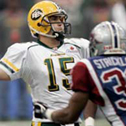 By Wednesday, November 30 the holiday season federal election campaign that everyone said everyone else did not want will be well under way. According to pollster Michael Adams, it is likely to be “nasty, brutish, and short.” (Though with the date on January 23, the campaign will in fact be the longest in more than two decades.) At this point many others apparently agree.
By Wednesday, November 30 the holiday season federal election campaign that everyone said everyone else did not want will be well under way. According to pollster Michael Adams, it is likely to be “nasty, brutish, and short.” (Though with the date on January 23, the campaign will in fact be the longest in more than two decades.) At this point many others apparently agree.
It is also being said that “experts fear fewer voters than ever will bother taking part.” In June 2004, “just 60.9 per cent of eligible Canadians cast a ballot, the lowest figure since 1896.” Will it be even lower this time – only some 18 months after the last election, with much of the campaign over the year-end holiday season, and the actual election date in the middle of winter?
If it is a nasty campaign followed by a record low voter turnout that will be a shame. The Canadian federal election of January 2006 could be unusually important historically.
There is at least a case for the argument that what happens over the next short while in Canadian politics will be sending big shockwaves over the next few decades. Your Canadian grandchildren may one day be asking you: How did you vote in the holiday election of 2006? (And what will you say if you did not vote at all?)
What is the big issue … how to give Canada today a government that works?
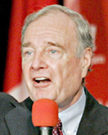 Some are saying that the opposition parties, grasping at the still smoldering first Gomery report on the old Liberal sponsorship scandal in Quebec, want to make “ethics” the big campaign issue. Paul Martin’s new Liberal minority government wants to make it “the Canadian economy, which is going very well, and Canadians deserve to see it continue.” A recent opinion poll – as USA Today reported on Friday, November 25, 2005 -Â “indicates Canadians consider the government-funded health care system their No. 1 concern.”
Some are saying that the opposition parties, grasping at the still smoldering first Gomery report on the old Liberal sponsorship scandal in Quebec, want to make “ethics” the big campaign issue. Paul Martin’s new Liberal minority government wants to make it “the Canadian economy, which is going very well, and Canadians deserve to see it continue.” A recent opinion poll – as USA Today reported on Friday, November 25, 2005 -Â “indicates Canadians consider the government-funded health care system their No. 1 concern.”
From a more down-to-earth perspective, it seems highly arguable that the No. 1 concern of we Canadian voters in January 2006 ought to be how to give Canada today a federal government that works – one that won’t be taking us all to the polls yet again, another 18 months from now. And this is also the issue that could make the election unusually important historically.
The most optimistic point of view, at least, would seem to be that the current Ottawa soap opera, which started in deadly earnest this past spring and has now ended with the Liberal minority government’s November 28 defeat, has not really been about the hyper-ventilating insults Canadian federal politicians have been throwing at each other. At bottom, the grating noise in Parliament has reflected more fundamental problems of governing present-day Canada.
These problems have been gathering steam for several decades. And they just may have reached a point where something is now going to have to be done to deal with them more constructively, at last and in the open air.
Can anyone win a stable majority?
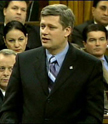 Without getting into any deeper depths of anything for the moment, the most practical and current side of the dilemma has been suggested tidily in a Canadian Press report on the CTV website, headlined “MINORITY GOVT LIKELY OUTCOME OF VOTE: EXPERTS.” As this report puts it: “The one thing both [Liberal leader Paul] Martin and [Conservative leader Stephen] Harper want the most – a majority government with no need to make any deals with other parties – seems so far out of reach it’s all but impossible.”
Without getting into any deeper depths of anything for the moment, the most practical and current side of the dilemma has been suggested tidily in a Canadian Press report on the CTV website, headlined “MINORITY GOVT LIKELY OUTCOME OF VOTE: EXPERTS.” As this report puts it: “The one thing both [Liberal leader Paul] Martin and [Conservative leader Stephen] Harper want the most – a majority government with no need to make any deals with other parties – seems so far out of reach it’s all but impossible.”
The “problem, says Allan Tupper, a political scientist at the University of British Columbia, is that the geographically fragmented voting patterns of 2004 show no sign of changing. We have a variety of regional electoral maps, each with its own different partisan competitions – and all of which, put together, make it difficult for any party to win a majority.'”
Officially, the answer to this dilemma from all main federal parties except the sovereigntist Bloc Quebecois (which only competes in Quebec) is still just give us a majority of seats in Parliament. That way there will be a stable government that can stay in office for a full four or five years – and get on with the business of building a better future for the people of Canada.
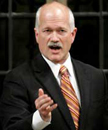 In the case of Jack Layton’s New Democrats this answer is sheer bravado that no one, including the New Democrats, takes seriously. It is just what the current system somehow requires all seriously aspiring party leaders to say. In the case of Stephen Harper’s Conservatives, there may be some remote chance that altogether startling and unexpected developments during the campaign just might very surprisingly lead to the barest of majority governments (155 or 156 of all 308 seats, say). But those who ponder the polls and the seat-by-seat mechanics of such things will tell you that this is highly unlikely at best.
In the case of Jack Layton’s New Democrats this answer is sheer bravado that no one, including the New Democrats, takes seriously. It is just what the current system somehow requires all seriously aspiring party leaders to say. In the case of Stephen Harper’s Conservatives, there may be some remote chance that altogether startling and unexpected developments during the campaign just might very surprisingly lead to the barest of majority governments (155 or 156 of all 308 seats, say). But those who ponder the polls and the seat-by-seat mechanics of such things will tell you that this is highly unlikely at best.
At the moment Paul Martin’s Liberals seem almost convinced that they can win some barest of majority governments. And there are intermittent opinion polls which sometimes point a little in this direction. A very recent Ekos poll for the rigorously Liberal Toronto Star found that “the Liberals stand at 38.7 per cent of voter support.” And, the Star also noted that (as a result of the strange political arithmetic of Canada’s present electoral system, as it works with more than two main parties in play): “In the 2000 election, the Liberals captured a majority of Commons seats with 40.8 per cent of ballots cast.”
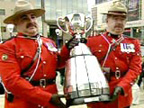 Yet the sheer fact that the Liberals have in the past been able to win a majority of seats in Parliament with less than 41% of the popular vote – and a concurrent relative lack of representation in some key parts of the country’s vast and rugged geography – has itself been one of the more fundamental problems of governing present-day Canada that have been gathering steam for some time. And, fortunately from this point of view at least, those who ponder the polls and the seat-by-seat mechanics of such things most deeply seem pretty convinced, for the moment, that even the Liberals are unlikely to pull off this kind of trick again in January 2006.
Yet the sheer fact that the Liberals have in the past been able to win a majority of seats in Parliament with less than 41% of the popular vote – and a concurrent relative lack of representation in some key parts of the country’s vast and rugged geography – has itself been one of the more fundamental problems of governing present-day Canada that have been gathering steam for some time. And, fortunately from this point of view at least, those who ponder the polls and the seat-by-seat mechanics of such things most deeply seem pretty convinced, for the moment, that even the Liberals are unlikely to pull off this kind of trick again in January 2006.
Is what kind of minority government what the divided people really want anyway right now?
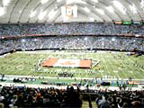 If these expert calculations finally prove correct, the question becomes will it be a Liberal or a Conservative minority government that comes out of the fresh election? (I.e., will it be the Liberals or Conservatives who win the largest number of seats in Parliament short of a majority?) And then what are the prospects for a stable minority government of one sort or the other, partnered with what other party or parties?
If these expert calculations finally prove correct, the question becomes will it be a Liberal or a Conservative minority government that comes out of the fresh election? (I.e., will it be the Liberals or Conservatives who win the largest number of seats in Parliament short of a majority?) And then what are the prospects for a stable minority government of one sort or the other, partnered with what other party or parties?
Here the recent Canadian Press report on the CTV website has also tidily summarized the current expert wisdom: “The best bet for at least a longer-lasting government may be another Liberal minority, with the NDP taking enough seats to hold the balance of power in the 308-member House of Commons.”
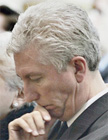 The trouble with a Conservative minority is that it is “harder – though not mathematically impossible- to figure out how the Conservatives” could win the largest number of seats themselves. And then: “Even if the Tories succeed” to this extent, they would “still have to figure out who to turn to for support to keep a minority government ticking over … They could work with the Bloc, but for how long?’ says Don Desserud, who teaches political studies at the University of New Brunswick. We could end up with the same type of unstable House we have now, but even worse.’
The trouble with a Conservative minority is that it is “harder – though not mathematically impossible- to figure out how the Conservatives” could win the largest number of seats themselves. And then: “Even if the Tories succeed” to this extent, they would “still have to figure out who to turn to for support to keep a minority government ticking over … They could work with the Bloc, but for how long?’ says Don Desserud, who teaches political studies at the University of New Brunswick. We could end up with the same type of unstable House we have now, but even worse.’
All these calculations depend on the drift of what the polls have generally been saying virtually since the last election in June 2004. And this could of course change in the heat of the coming campaign, for one reason or another. As matters stand, the choices facing we the voters of Canada do not seem at all easy. But one thing does seem as certain as anything in politics can be.
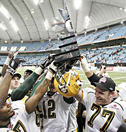 If the Liberals do manage to pull even a bare majority government out of the hat again this time, it does not seem very likely that they will be paying any further attention to the more fundamental problems of governing present-day Canada. And perhaps Canada actually has reached the point where it has to start looking into these problems more forthrightly and constructively.
If the Liberals do manage to pull even a bare majority government out of the hat again this time, it does not seem very likely that they will be paying any further attention to the more fundamental problems of governing present-day Canada. And perhaps Canada actually has reached the point where it has to start looking into these problems more forthrightly and constructively.
Perhaps some things in Ottawa do have to start to change, in big enough ways. Perhaps that is what the people of Canada were trying to tell their politicians in 2004. And perhaps they will try to tell them the same thing again in 2006. That now seems to be the most optimistic and forward-looking angle, for the moment. Maybe we the people of Canada are collectively smarter than we sometimes think? And maybe the politicians who can somehow grasp this practically will be the ones who do best? Meanwhile, of course, stay tuned.
* * * * * *
Oh, and by the way, in case you haven’t already heard, Edmonton beat Montreal for the Grey Cup in Vancouver, in a sensational overtime climax on Sunday, November 27. Some will no doubt wonder what this might mean for the federal election.
Intriguingly enough there was also a plebiscite on electoral reform in Prince Edward Island on Monday, November 28. A proposal for proportional representation in PEI’s provincial legislative assembly was defeated, by a greater margin than a similar vote in the most recent BC provincial election. Some will no doubt wonder what this might mean for the federal election too. The answer would now seem to be probably not too much.

